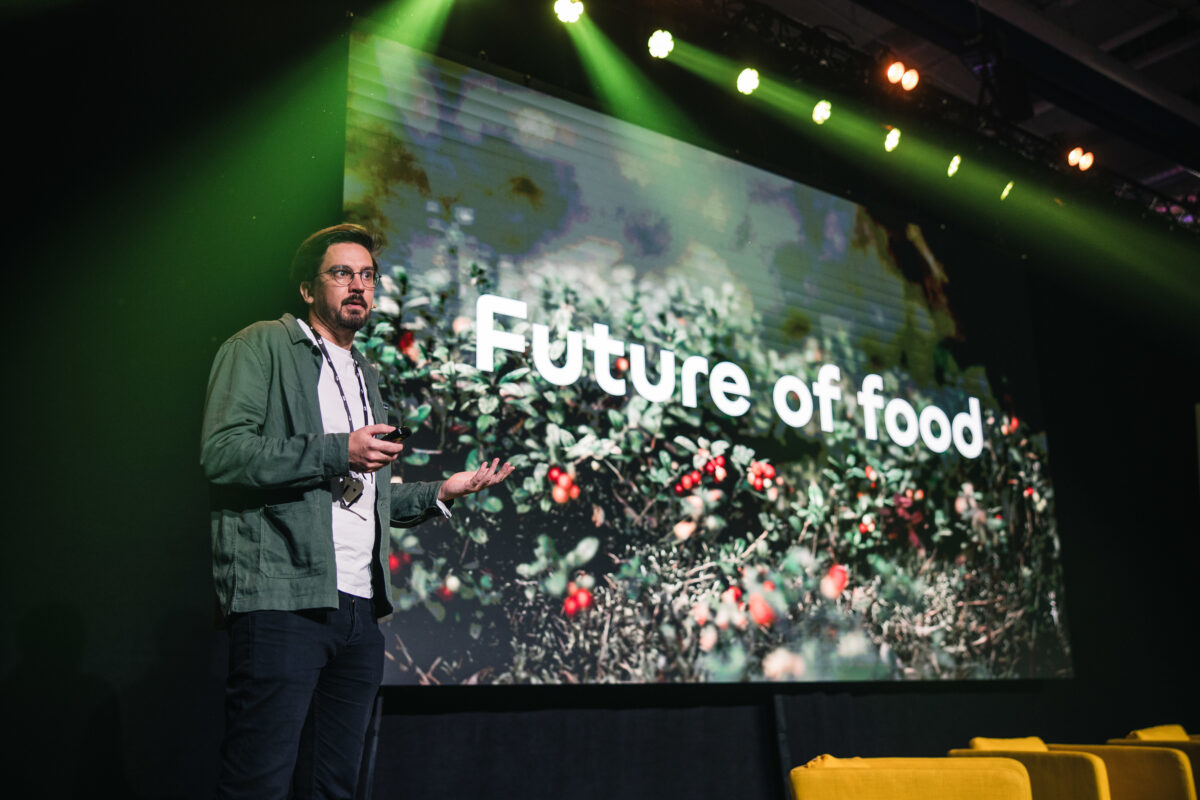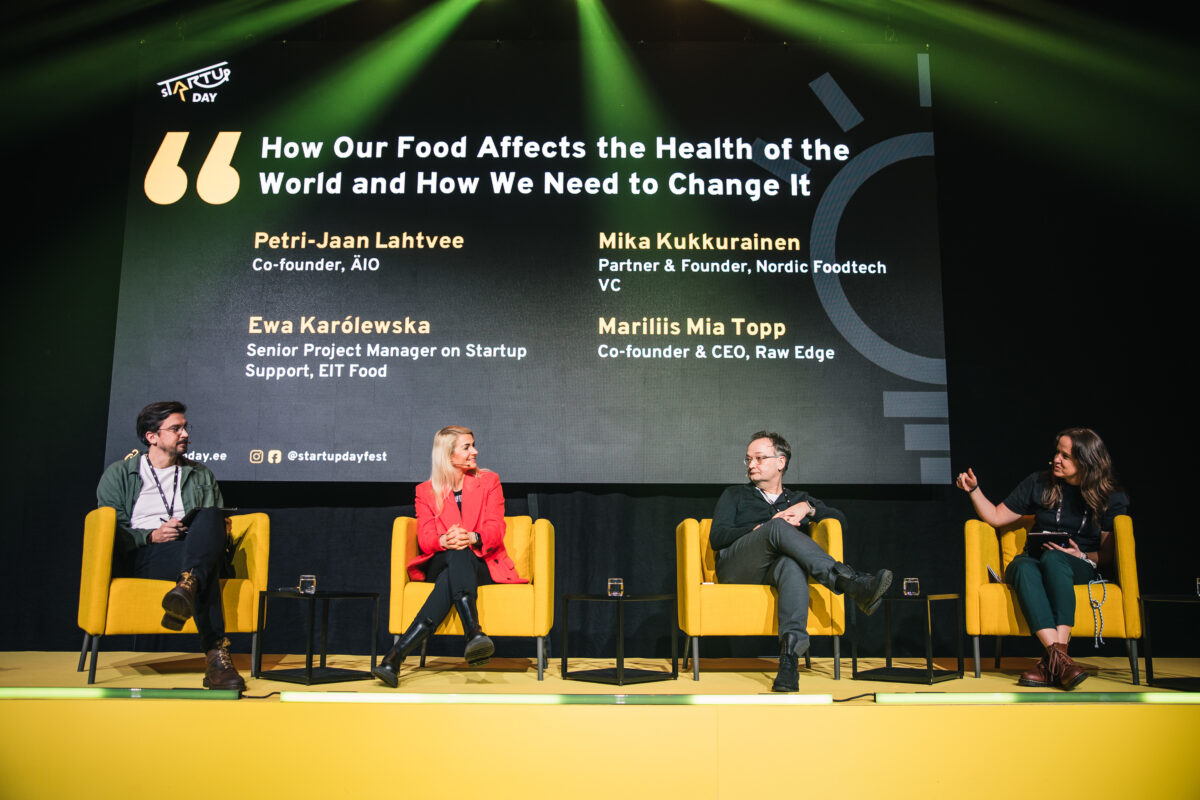Start Up Day, Tartu 2024: How our food affects the health of the world and why we need to change it
A glimpse of deeptech insights impacting our food systems, Start Up Day, Tartu 2024.
In response to the pressing challenges of a growing global population, climate change, and resource depletion, biotechnology emerges as a crucial force in reshaping our food systems. The paradigm shift towards circular and resilient food production is at the heart of this transformation, with biotechnology offering innovative solutions for several topical issues. One of many is tackling food waste and finding ways to produce more, with less.

Petri-Jaan Lahtvee (ÄIO) presenting at Start Up Day, Tartu 2024.
Central to this change are new technologies and new foods. Fermentation technologies enable the production of high-quality foods and other ingredients with significantly reduced land and water usage. This process operates up to 10 times faster than traditional methods of conventional agriculture, fosters circularity by turning waste into valuable inputs for further stages of production. Biotechnology harnesses microorganisms to upcycle under-valued feedstocks, enhances their nutritional content and creates unique flavors, textures and ultimately – better products. From plant-based fats and proteins (much like ÄIO), to healthy fermented beverages (like RawEdge) to cultured meats (like Gelatex), these advancements offer sustainable alternatives to unsustainable and unhealthy choices that we are otherwise unwilling to give up.
“For ÄIO the ultimate goal is to offer tasty, healthy and sustainable alternatives to palm oil and animal-based fats,” – Petri-Jaan Lahtvee, co-founder of ÄIO.
While the Baltic and Nordic food markets are relatively small, local food startups are compelled to think globally from the outset. The global perspective becomes essential in scaling up innovative solutions and ensuring a broader impact on a global scale. Besides, the environmental benefits are substantial, as biotechnology reduces the need for extensive farmland, addressing concerns of deforestation and habitat loss. Moreover, efficient water use and accelerated production timelines, bioprocess derived processes contribute to a more sustainable and resilient food system, crucial in the face of climate change.

Panel discussion, Insight Stage (from left Petri-Jaan Lahtvee, Ewa Karolewska, Mika Kukkurainen, Mariliis Mia Topp). Start Up Day, Tartu 2024.
Venture capital investments into food innovation startups are still in their nascent stages, particularly in the Baltic and Nordic regions. However, this trend is rapidly gaining momentum, with the first startups beginning to establish their demo productions. As these investments grow, we can anticipate a surge in transformative food technologies, aligning with the increasing demand for sustainable and ethical choices in the region. “Investing in biotechnology not only aligns with ethical considerations but also presents a lucrative economic opportunity. Companies pioneering in these biotechnological advancements are well-positioned to lead the way in a market driven by the growing demand for ethical and sustainable solutions.” – Mika Kukkurainen, partner at Nordic Foodtech VC.
Once again, Start Up Day, held recently in Tartu, Estonia offered a fruitful debate on the future of our foods. Find more about this community event here.